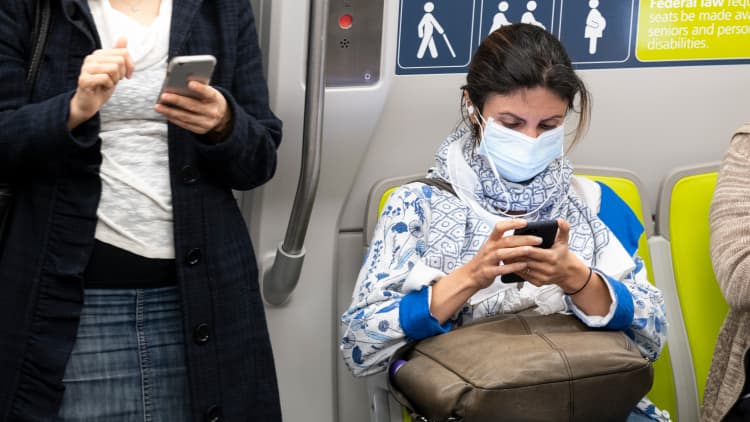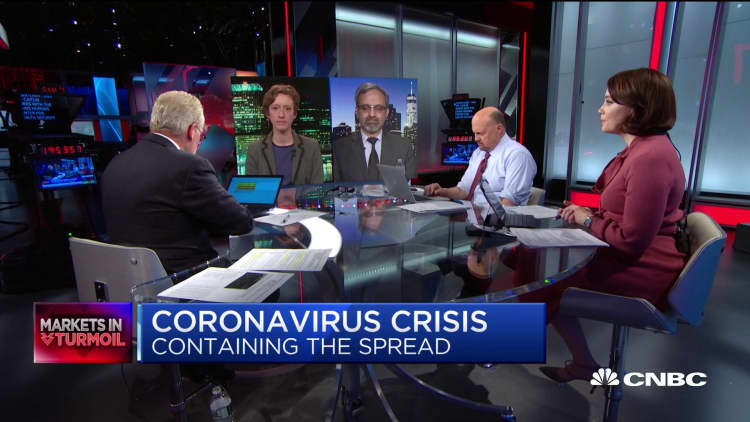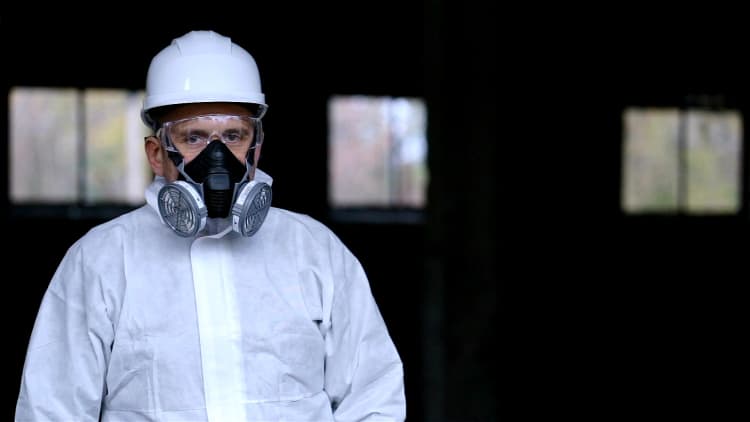
U.S. health officials confirmed the first possible community transmission of the coronavirus in America, a troubling sign that the virus could be spreading in local cities and towns.
The Centers for Disease Control and Prevention doesn't know exactly how the California patient contracted the virus. The individual is a resident of Solano County and is receiving medical care in Sacramento County. The patient didn't have a relevant travel history or exposure to another patient with the virus, the CDC said Wednesday.
"At this time, the patient's exposure is unknown," the CDC said in a statement. "It's possible this could be an instance of community spread of COVID-19, which would be the first time this has happened in the United States."
In a note to staff at UC Davis Medical Center, CEO David Lubarsky confirmed that the CDC is investigating a patient at the center who may be the first to have contracted the infection from community exposure.
The patient arrived at the facility on Feb. 19 after being transferred from another hospital in Northern California, Lubarsky said in the note. He said the patient wasn't immediately tested for the new coronavirus because the person didn't fit the existing CDC criteria for the test, a protocol that UC Davis said it does not control.
The CDC ordered coronavirus testing on Sunday and confirmed Wednesday that the patient tested positive, UC Davis said.

The case brings the total number of cases in the U.S. to 60, a bulk of which are people who were evacuated from Wuhan, China or the Diamond Princess cruise ship that was quarantined off the coast of Japan.
"Community spread means spread of an illness for which the source of infection is unknown," the agency said, adding that it's possible the patient contracted the virus from someone who brought the infection back from another country. It's significant because it means that it's also possible the infection is spreading untraced throughout the local community.
California's State Public Health Officer Dr. Sonia Angell said it's been "an evolving situation, which California has been monitoring and responding to since COVID-19 cases first emerged in China last year. This is a new virus, and while we are still learning about it, there is a lot we already know."
Earlier this week, CDC officials said that it was just a matter of time before the outbreak starts to spread in the U.S."We are asking the American public to work with us to prepare for the expectation that this could be bad," Dr. Nancy Messonnier, director of the CDC's National Center for Immunization and Respiratory Diseases, told reporters on a conference call.
The announcement from the CDC came just hours after President Donald Trump asserted the risk of the virus to the American public is "low."
Earlier in the day, U.S. Health and Human Services Secretary Alex Azar confirmed a new case of the coronavirus in the U.S., "the epidemiology of which we are still discerning," he said while testifying on Capitol Hill.
The CDC said it is working closely with state, local, tribal, and territorial partners, as well as public health partners, to respond to this public health threat. "Unprecedented, aggressive efforts have been taken to contain the spread and mitigate the impact of this virus," the agency said.
Health officials have said the respiratory disease is capable of spreading through human-to-human contact, droplets carried through sneezing and coughing and germs left on inanimate objects.
Hospitals across the U.S. have been preparing for the virus to spread further throughout the country, worrying a larger outbreak could overwhelm emergency rooms and quickly cause supply shortages of some crucial medical supplies.
The threat of the virus comes at a busy time for most U.S. hospitals. Another serious respiratory illness, the seasonal flu, is at its peak in the United States and many hospitals are stretched thin.
There are no proven therapies for the virus and a vaccine is likely to take more than a year.U.S. health officials said this week the first clinical trial testing of Gilead's remdesivir in hospitalized patients with the coronavirus began.
Read CNBC's live updates to see the latest news on the COVID-19 outbreak.
— CNBC's Christine Wang contributed to this report.




